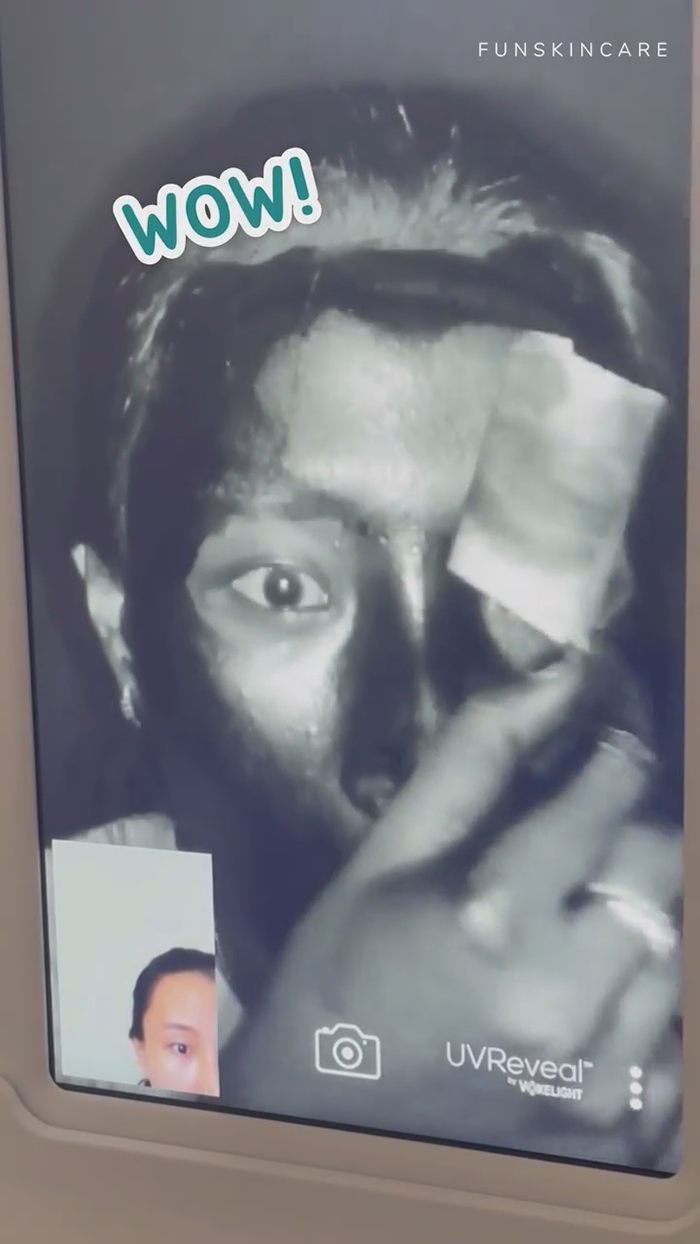It is important to slather on sunscreen in the daytime. This is true even if you’re spending most of the day indoors as UV rays can pass through glass windows.
Sunscreen helps protect our skin from being damaged or burned, while also helping to slow signs of ageing and prevent the appearance of hyperpigmentation.
But throughout our day, our face may secrete oil, and we might turn to oil blotting papers to soak up the grease – we’re sure those with oily skin can relate!
Do you reapply your sunscreen after you blot your face, though? You might want to start doing that from here on out.

Claudia Christin, who has a PhD in Dermatology, recently showcased the effects of blotting sheets on your sunscreen protection and she enlisted the help of her UV camera to prove her point.
After putting on her daily sunscreen, she switches on the UV camera. Her face is initially dark and black under the UV camera, which indicates an even application of sunscreen.

Taking out a blotting paper, she slowly dabs it on areas around her face, and it is immediately apparent that the sunscreen is being removed.
The dark areas where the sunscreen was started becoming lighter and lighter where she dabbed, which means the UV protection was becoming less strong.
It was the most evident on her forehead, which showed a large grey patch after the use of only a single blotting paper!

She then began reapplying her sunscreen, which shows the stark contrast between a blotted area versus skin that is freshly coated in SPF.
This is you should remember to reapply your sunscreen when necessary, especially if you tend to reach for the blotting paper a few times during the day!
Since we’re on the topic of sunscreens, have you read our previous article on sunscreens versus SPF-infused foundation? The results on the UV camera might shock you, as it did us.
In the meantime, we’re going to go and reapply our SPF just to be on the safe side.
Related reads:


